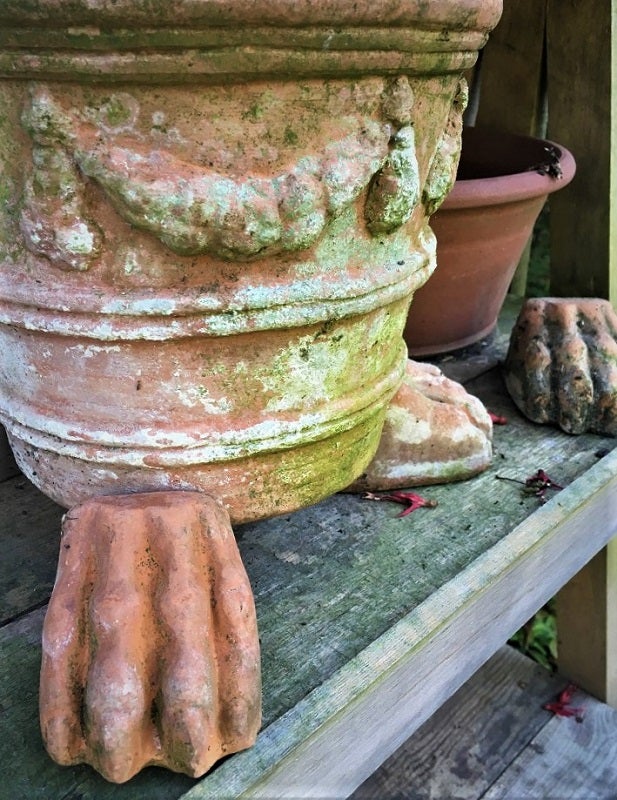Dead or alive? How to tell if a plant survives a freeze
Published 2:45 pm Saturday, February 23, 2019
By Sheri Bethard
Orange County Master Gardeners
Many questions people have as it starts to warm up towards springtime are, is my plant coming back after winter or did the cold get it?
In December, we had some temp’s that were in the 20’s so we wonder if our plants survived thru them. It’s sometimes hard to tell the extent of cold damage. Most of your landscape may look like it is dead, hopeless and terrible now, but has survived and will make a comeback. Then you may have parts of your landscape which made it thru winter without any problems.
It’s hard to predict whether or not individual plants are alive. Many variables are in play. Be optimistic for plants growing in the ground, particularly if you were able to provide some protection. Some covered plants may have been damaged. Given those 20ish nights, it’s to be expected. The cover was not there to prevent all damage, but to save the life of the plant.
The second most common question has been: “What should I do to help my plants recover?” If the plants survived, they will recover if you leave them alone. If they didn’t make it, nothing you do now will bring them back. Do not fertilize, water excessively or do anything like that yet.
Citrus trees
Citrus plants do not like temps in the 20’s. But in our case it was only at night for a couple of hours and nights at a time.
Lemons and limes, the least cold tolerant citrus plants, are more likely to show damage or to have died. If the branches drop all leaves, its possible it is still alive. Leaves that have turned brown and are still on the tree indicate major branch damage. Also fruit left on the trees through freezes is ruined.
Don’t do anything to your citrus trees now. When new growth begins in spring, you’ll be able to see what is alive (sprouting) and what is dead. If new sprouts are only from the base of the trunk (graft), the desirable citrus is lost, and all that is left alive is the rootstock. Remove and replace the tree.
If the new growth occurs from upper portions of the tree above the graft union, prune back to the areas that are sprouting. Cold-damaged citrus trees that sprout in spring may show more damage in midsummer. Growing shoots may collapse and die and should be pruned off then.
Woody Tropicals
Hibiscus and other woody tropicals — including brugmansia, tibouchina, bougainvillea, croton and ixora — could have damaged. Wait until spring when new growth appears, and do your pruning. You can clearly see what is alive and dead. If you’re impatient, use your thumbnail to scratch the bark starting at the top of the plant and working down. If the tissue just under the bark is tan or brown, that branch is dead. When you find green tissue just below the bark, that part is still alive, and cut back to there. This applies to most woody tropicals
Bird of paradise
Cut the dead and damaged foliage of bird of paradise plants back, removing the leaf stem along with the leaf blade. These plants have likely survived and will recover, although flowering this summer will be sparse.
Other tropicals
Tropicals producing bulbs, rhizomes or other fleshy below-ground organs should be just fine. Cut badly burned gingers, cannas, Agapanthus (lily of the Nile), amaryllis, crinum and spider lilies (Hymenocallis) and elephant ears down to the ground and mulch over the rhizomes as they will return from their bulbs.
Ferns
Ferns damaged by the cold — including Boston fern, sword fern, leather leaf fern, holly fern, asparagus ferns and others — cut to the ground before new fronds appear in the spring. You could do it now.
You also may cut back Aztec grass and variegated flax lily (Dianella) to remove damaged foliage. All will recover.
This is a good time to look over your landscape and consider your use of tender tropicals. We sometimes get carried away with the use of these wonderful plants – only to see extensive damage or loss during hard freezes.
We must always keep in mind our climate is not tropical, and occasional severe freezes are part of gardening here. Always consider hardiness when making your choices. The hardiness zone for Orange County is 9. Check our seminar on “Selecting the Right Plant”, March 16, 9-11AM at Cormier Park, call 409 882-7010 for more information.






